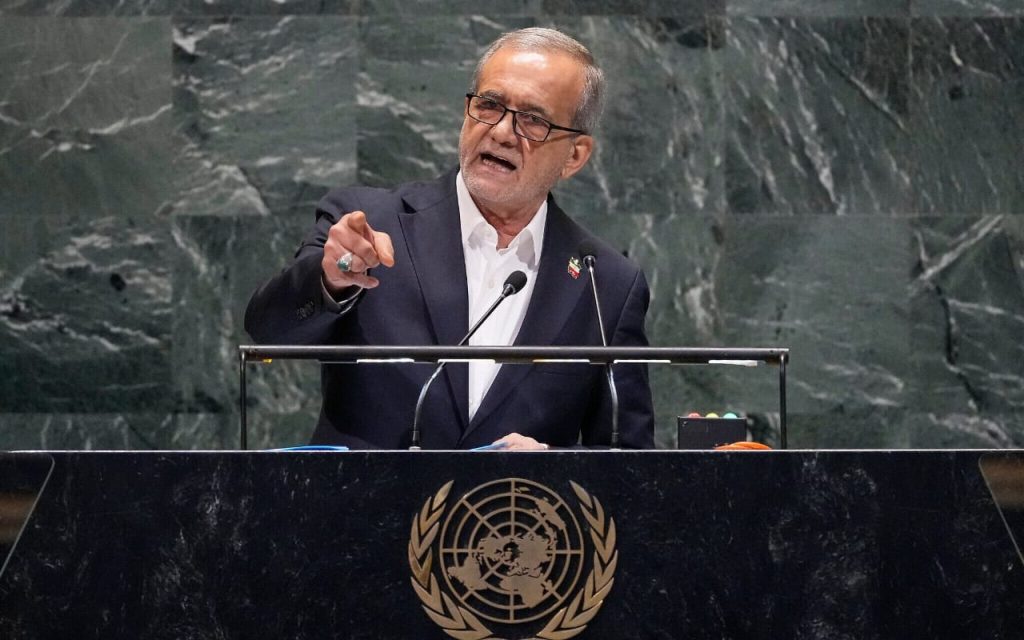Eniola Amadu
Iran’s President Masoud Pezeshkian has accused the United States and Israel of undermining peace efforts, warning that renewed United Nations sanctions would further strain the country’s fragile economy.
His remarks came in a speech before the UN General Assembly in New York, his first address to a global forum since this year’s brief but intense war with Israel.
Pezeshkian said the 12-day conflict in June, which killed several top Iranian leaders and damaged nuclear facilities, was a “savage aggression” and a violation of international law.
“My country was subjected to a flagrant contravention of the most elementary principles of international law,” he told world leaders, while describing himself as committed to diplomacy.
His appeal comes days before a 30-day deadline expires for the automatic reinstatement of sanctions under the so-called “snapback mechanism” in the 2015 nuclear agreement.
France, Germany, and the United Kingdom triggered the measure earlier this year, citing Iran’s enrichment of uranium beyond agreed limits and its refusal to provide the UN’s atomic watchdog with full access to its facilities.
Unless a deal is reached before Sunday, the sanctions will resume automatically, freezing Iranian assets abroad, halting arms sales, and restricting Tehran’s ballistic missile programme.
European diplomats told reporters that talks in New York between Iran’s foreign minister, Abbas Araghchi, and representatives of the three European powers produced “no new developments.”
Officials said sanctions would therefore likely take effect as planned.
However, Pezeshkian accused the Europeans of acting in bad faith.
“They falsely presented themselves as parties of good standing to the agreement and disparaged Iran’s sincere efforts as insufficient,” he said.
Efforts for compromise have also been hampered by Supreme Leader Ayatollah Ali Khamenei, who ruled out direct nuclear talks with the United States.
He said Washington’s demands amounted to “a diktat” that sought the closure of Iran’s nuclear activities rather than negotiations.
The International Atomic Energy Agency recently signed an agreement with Tehran to resume cooperation, including inspections, but the arrangement has not been fully implemented.
Earlier, Iran’s parliament suspended all collaboration with the agency after Israel’s strikes.
Iran insists its nuclear programme is for peaceful purposes, though Western governments and the IAEA believe it had pursued weapons development until 2003.
Khamenei reiterated that Tehran does not seek atomic bombs but warned: “Science will not be demolished by threats and bombing.”



